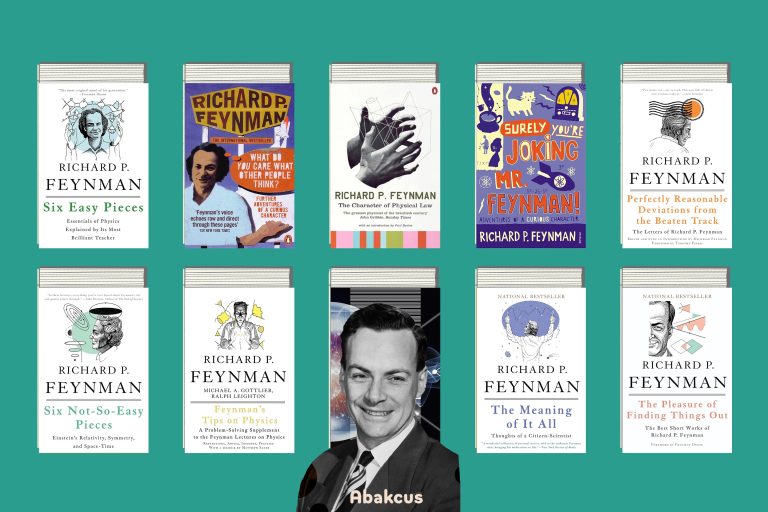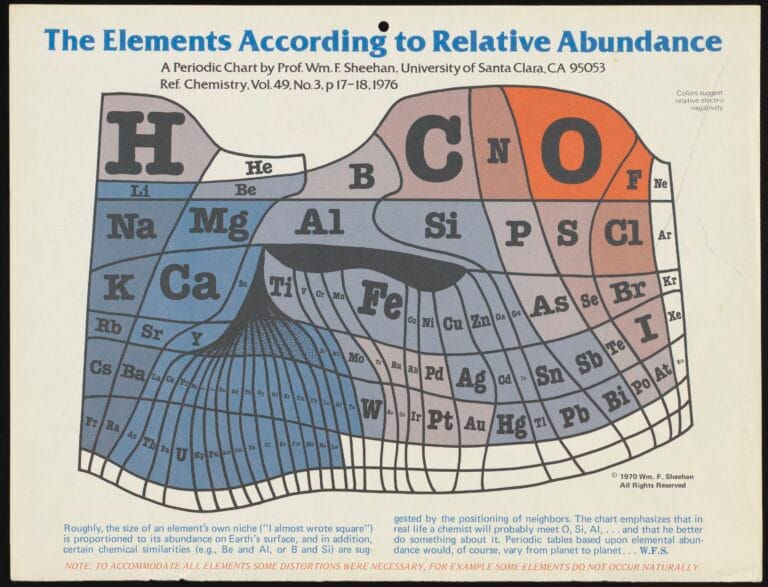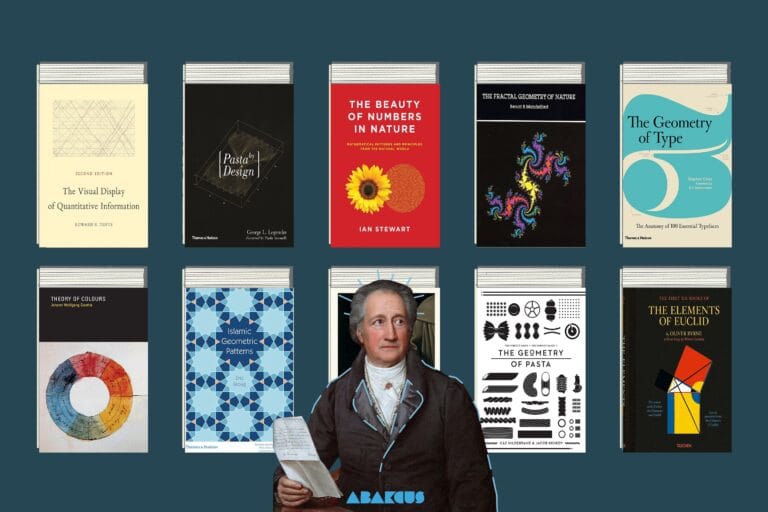Are you looking for the best physics textbooks to help you excel in your studies? With so many different titles on the market, making an informed decision can be difficult. Fortunately, a Harvard Ph.D. student in Physics has compiled a list of the top modern physics books that provide comprehensive coverage and serve as helpful references for any aspiring physicist.
In this article, I’ll discuss each physics book’s features and why it stands out from other titles on the market. I’ll also provide tips on choosing the right physics books for your needs so that you can get started confidently.
So whether you’re just starting or are already familiar with modern physics basic principles, let’s look at what books for physics are available and which are most beneficial to helping you reach your goals! And I hope you will not hate physics anymore because these physics textbooks are designed to teach physics!
Table of Contents
Why choosing a physics textbook can be daunting?
Physics is like a door for scientific discovery, showing us how the world works. And still, modern physics is considered one of the most difficult subjects to study. It is a vast subject that covers everything from classical physics to quantum physics, thermodynamics to electromagnetism, theoretical physics to nuclear physics, fluid mechanics to optics, and much more. Each of these topics requires extensive human knowledge and an understanding of foundational physics that can be challenging to grasp without proper guidance.
That is why modern physics requires a deeper understanding of the concepts and good analytical and mathematical skills. However, learning modern physics can be an irresistible and revelatory journey, and selecting the right physics textbooks can make all the difference in the physical world.
Therefore, it’s essential to have university physics books that provide clear explanations, helpful real-world examples, and engaging exercises to ensure that you fully understand the basic physics principles and can apply them in practice.
Moreover, modern physics is a subject that requires a lot of self-study and independent learning. Unlike other subjects requiring rote memorization or formulaic problem-solving, physics demands analytical thinking and problem-solving skills that can only be developed through persistent practice. Therefore, good physics books should not only present the classical physics fundamental concepts clearly but also provide ample opportunities for physics and engineering students to practice and apply their knowledge.
Fortunately, a Harvard Ph.D. student in Physics, Furkan Ozturk, has compiled a list of the best physics textbooks that provide comprehensive coverage to teach physics easily and serve as helpful references for any aspiring physicist. With this guide, engineering students can save countless hours investigating multiple sources to find the right physics books. They can confidently select the best physics textbooks for their level of learning and area of interest. Don’t forget that if these physics books helped a physics Ph.D. student, you would also benefit the most from these physics books if you are a physics student.
In conclusion, selecting good physics textbooks is crucial to mastering the subject. College students must choose a text that presents classical physics’ important concepts and physics basic principles in an engaging and accessible way while providing ample opportunities for practice and application. With a good physics textbook, students can take their first steps toward becoming physicists confidently and enthusiastically.

The Feynman Lectures on Physics by Richard P. Feynman
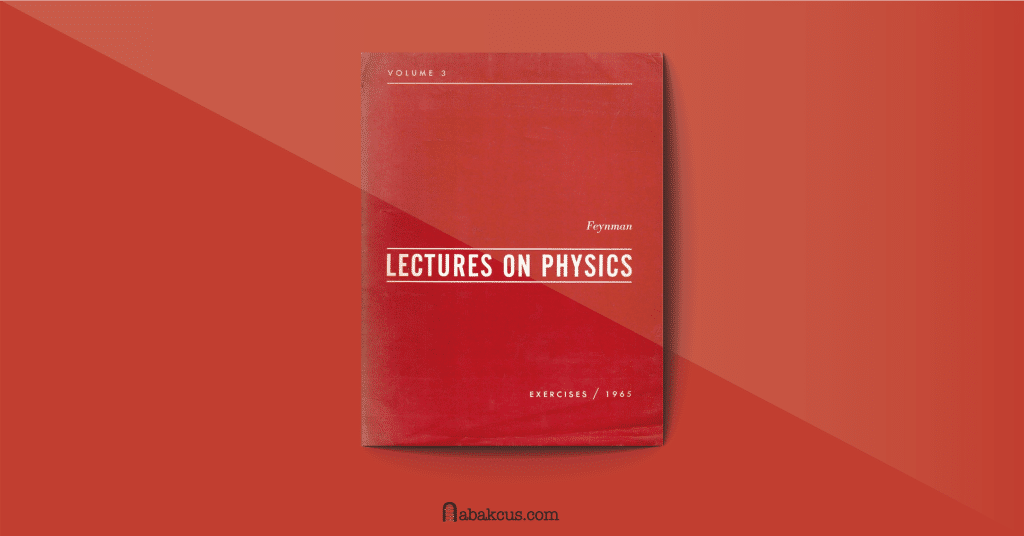
Having “The Feynman Lectures on Physics” in their collection is a must for physics and engineering students. This classic set of three physics books by Nobel prize winner Richard Feynman is filled with entertaining anecdotes in addition to carefully crafted explanations of modern physics’s fundamental physics and equations.
Whether they are studying thermodynamics or quantum physics, students can get important classical physics concepts clarified and have some fun while doing it. Best of all, because of its longevity and the impact on which it has had on so many disciplines, from particle physics to engineering, “The Feynman Lectures” makes an excellent reference to learning physics.
See also 12 Beautiful Richard Feynman Books for Physics Enthusiasts!Introduction to Quantum Mechanics by David J. Griffiths
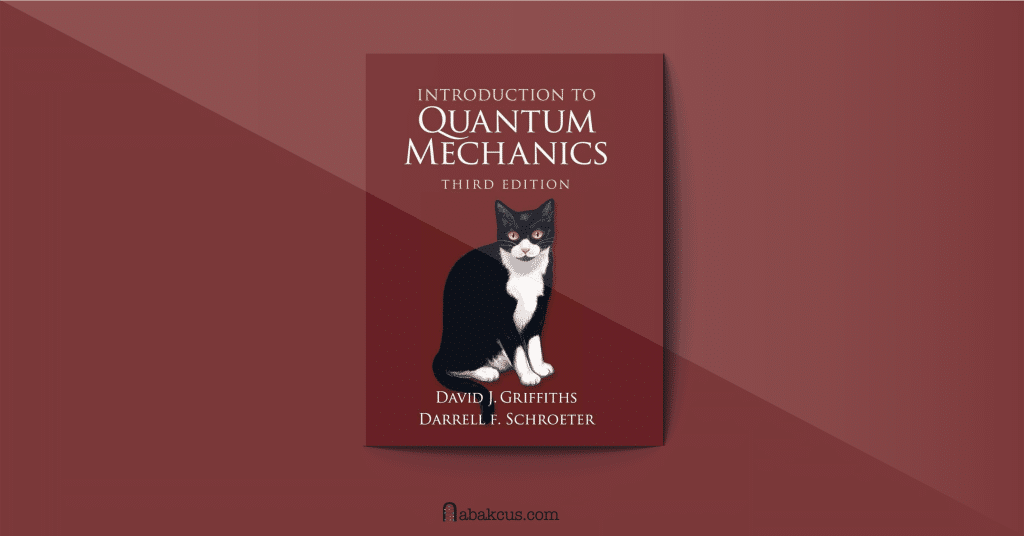
Introduction to Quantum Mechanics by David J. Griffiths is an engaging introduction for getting your feet wet in the field of quantum mechanics. From its concise explanations and simple diagrams to its clear structure, Professor Griffiths has crafted a comprehensive guide for novice students of quantum mechanics.
Introduction to Quantum Mechanics covers all essential topics, such as wave equations and path integrals, in a thorough yet approachable manner that makes it especially enjoyable. Even if you don’t completely understand everything on the first read-through, don’t worry; Introduction to Quantum Mechanics is structured so that you can keep going with any concept section until it clicks – something even authors with PhDs has described as surprisingly refreshing!
In short, Griffiths’s introduction to quantum mechanics is an excellent resource for anyone wanting to learn about these fundamental concepts without the jargon-filled headache.
Classical Mechanics by John R. Taylor
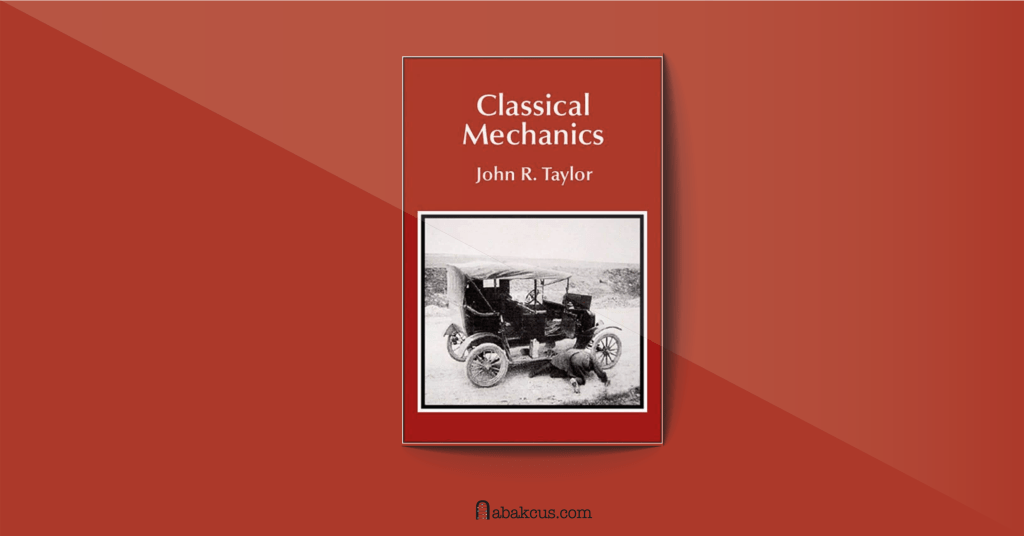
It’s no surprise that John R. Taylor’s Classical Mechanics is a must-have textbook for physics students. The comprehensive coverage of the material and his problem-solving approach make Taylor’s book the preferred choice among physics students.
With concise explanations and helpful examples scattered throughout classical physics, it has never been easier to understand than when explained in Taylor’s textbook. He highlights the basic physics of classical mechanics better than anyone else and has a dry sense of humor that lightens up the subject matter.
If you’re looking for easy-to-understand university physics textbooks with some wit included, look no further than John R. Taylor’s Classical Mechanics.
Introduction to Classical Mechanics by David Morin
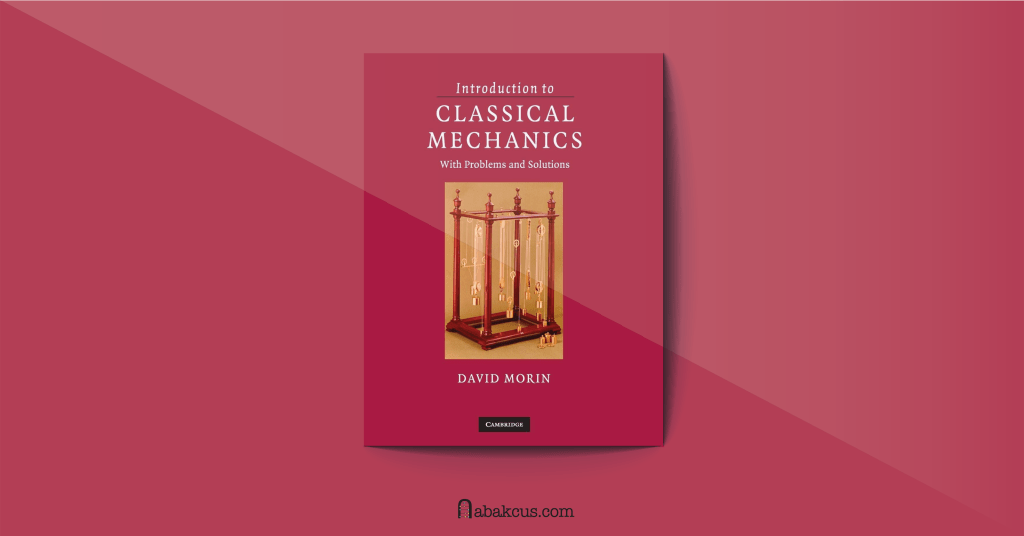
Introduction to Classical Mechanics by David Morin is an excellent resource for physics students for classroom learning and independent study. It is a comprehensive textbook covering the basics of classical mechanics with a unique approach, emphasizing physical thinking and developing problem-solving strategies without losing sight of mathematical rigor.
The organized and presented material makes it easy to read and digest while encouraging higher-order thinking skills in its readers. Plus, Morin’s dry wit sprinkled throughout the text make this book an enjoyable read! Overall, Introduction to Classical Mechanics by David Morin is a great book option for modern physics students looking to expand their understanding of classical mechanics.
Modern Quantum Mechanics by J.J. Sakurai
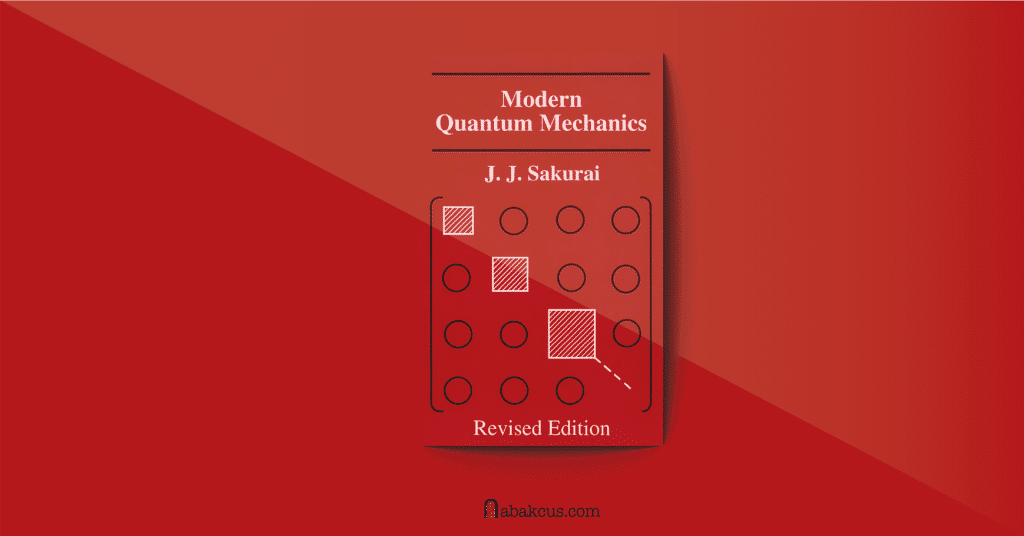
Modern Quantum Mechanics by J.J. Sakurai is an excellent choice for physics students looking to advance in the field. Modern Quantum Mechanics is well-written and easy to comprehend, making even complex physics concepts simple to understand.
You can expect crystal clear demonstrations of fundamental concepts, with everyday world examples that make learning fascinating. Sakurai explains how these equations function in everyday life without oversimplifying their importance or context.
Suppose you want a comprehensive overview of the fundamentals of quantum physics (with some humor thrown in along the way). In that case, Modern Quantum Mechanics, written by J.J. Sakurai, is a fantastic tool for achieving your goals!
Statistical Mechanics: A Set of Lectures by Richard P. Feynman

As a physics student, obtaining Statistical Mechanics: A Set of Lectures by Richard Feynman is essential for learning about and truly mastering physics. This book covers many concepts that are necessary for understanding the fundamentals of modern physics and its applications.
Not only does this book cover the necessary material, but it also introduces humor into the modern world of physics to make learning more enjoyable! Uniquely, this book combines formal lectures with witty jokes, making it an excellent tool for any physics student wanting to better their knowledge. It’s highly recommended for anyone looking to understand and appreciate Physics in a new way.
Introduction to Electrodynamics by David J. Griffiths
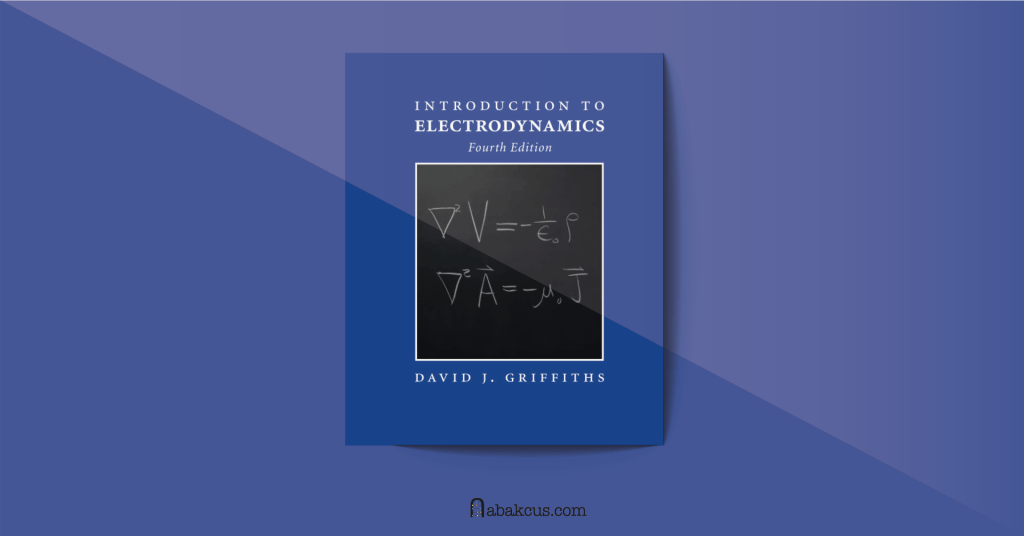
Introduction to Electrodynamics by David J. Griffiths is widely considered one of the best physics textbooks for learning about electrodynamics. It’s comprehensive, approachable, and has great illustrations that bring the concepts to life.
Plus, its conversation style of writing makes it easier to understand what can be a tricky subject. The clear explanations and step-by-step diagrams make it easy to work through the problems without feeling overwhelmed. That’s why this university physics textbook is so popular—it tackles difficult topics in simple terms and uses humorous examples, making it an enjoyable read!
Numerical Methods for Physics by Alejandro Garcia

Numerical Methods for Physics by Alejandro Garcia is an excellent university physics textbook choice for budding physics students. This book provides clear and concise explanations of the topics covered, making it easy to understand the different numerical methods used in introductory physics.
It offers a wide range of computational problems with its solutions – all at varying levels of complexity – so that readers can easily identify which sections are most suited to their learning styles and abilities.
What’s more, the way the material is presented is easy to follow and quite fun! So if a person wants to learn about numerical methods for modern physics without feeling overwhelmed or sluggish, this book would be a great fit.
Optics by Eugene Hecht
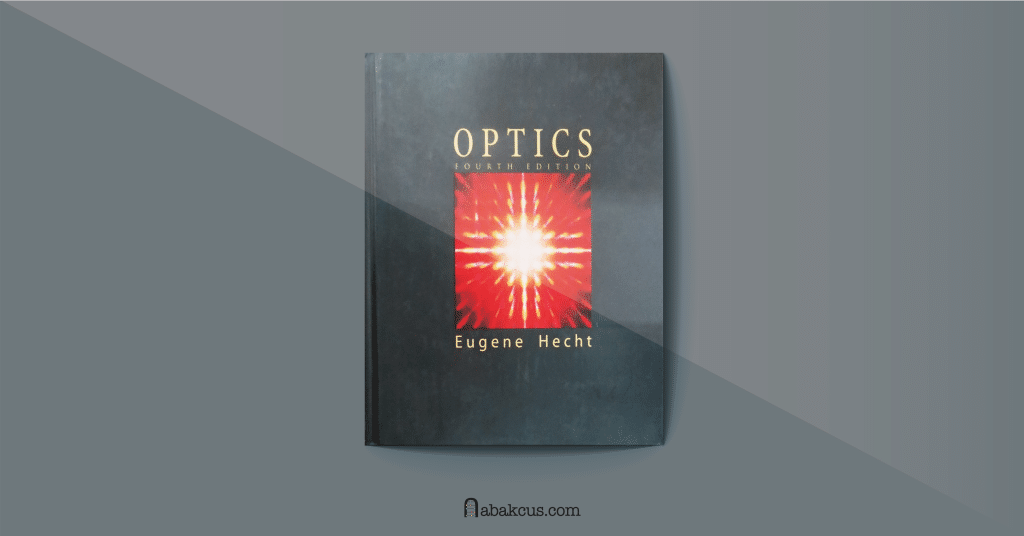
Optics by Eugene Hecht is undeniably one of the best university physics textbooks available for physics students. It offers a detailed yet easy-to-follow introduction to the subject and dives deep into the material with its outstanding coverage of modern optics topics.
Each chapter provides a comprehensive breakdown of sophisticated concepts, along with plenty of illustrations and examples that help to bring the theory to life. What’s more, the textbook includes humorous anecdotes throughout each chapter that add an element of fun and motivation for readers.
Eugene Hecht’s Optics is an insightful guide that can help bridge the gap between conceptual understanding and problem-solving — making it ideal for physics students and science and engineering majors.
Complex Variables and Applications by James Ward Brown
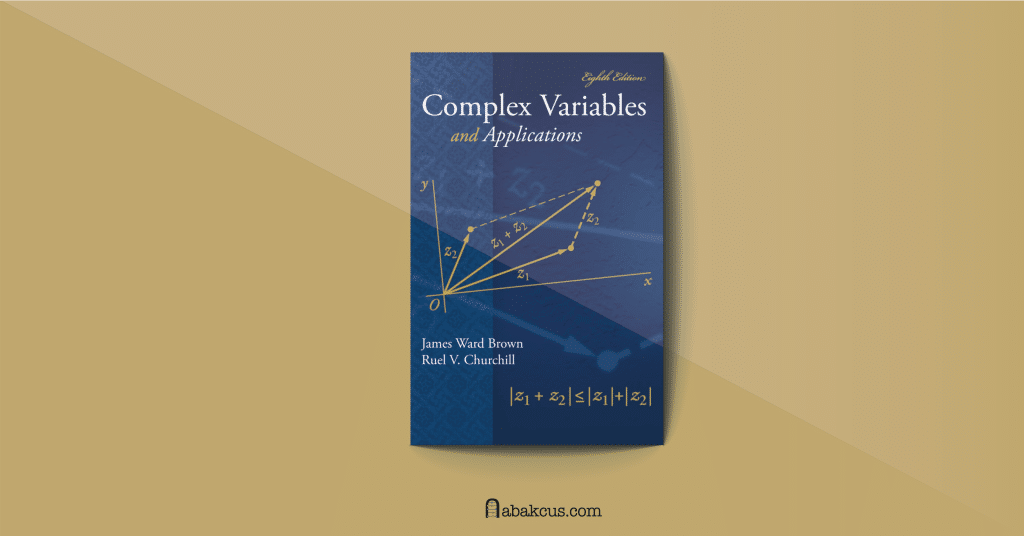
Complex Variables and Applications by James Ward Brown is an essential university physics textbook for anyone who wants to truly understand the complexities of the physical world. This textbook offers an in-depth study of the subject, which any physics student knows is invaluable when mastering difficult topics.
It also features many helpful exercises and examples – perfect for honing your problem-solving skills. Most importantly, it’s written in a humorous and reader-friendly tone, so it’s a pleasure to read! With this book, you’ll surely ace your next physics test with aplomb!
Mathematical Methods for Engineers and Scientists by Kwong-Tin Tang

Mathematical Methods for Engineers and Scientists by Kwong-Tin Tang is a great math textbook. It contains invaluable tools and techniques to help them solve mathematical problems related to their course of study.
This text was written in an easy-to-understand, concise manner, which makes it a great starting point for beginner-level physics students. It also uses equations, graphs, charts, and tables to visualize how physical laws govern the motion of particles, making it easier to comprehend complex concepts.
Further still, the book includes several examples to illustrate mathematical concepts in depth so that learners can better understand the subject. With this comprehensive guidebook, physics students will proficiently use mathematical methods for engineering physics and science courses!
Physics by David Halliday
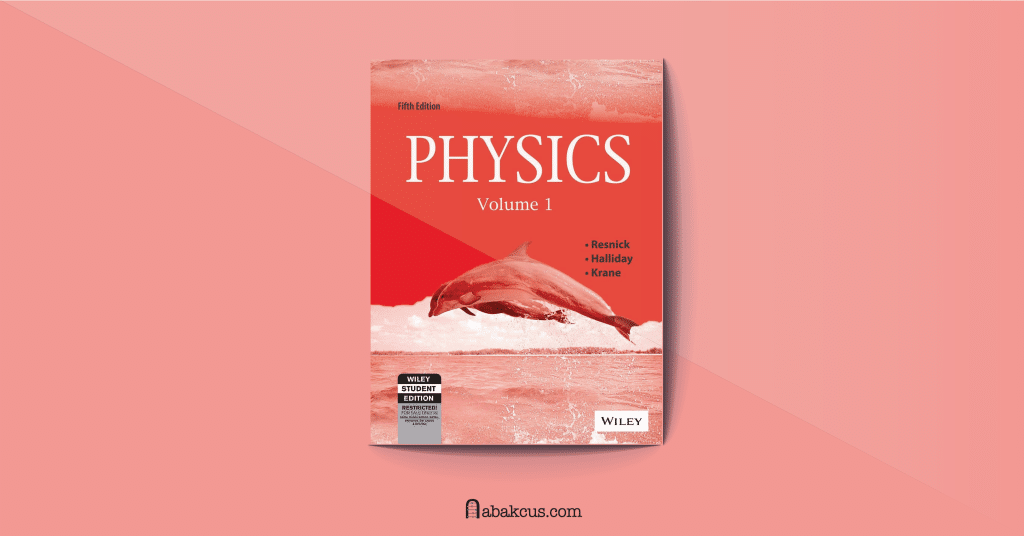
Physics by David Halliday is often considered the gold standard of introductory physics textbooks – and for a good reason! With its comprehensive coverage, concise explanations, and thought-provoking problems and activities, it’s no surprise that this university physics textbook is essential for any student seeking to understand the fundamentals of university introductory physics.
Its straightforward approach allows for easier comprehension and better retention of key concepts. Plus, it’s written in an engaging style that makes learning about introductory physics even more enjoyable – a great way to get top grades without all the boring lectures!
An Introduction to Mechanics by Daniel Kleppner
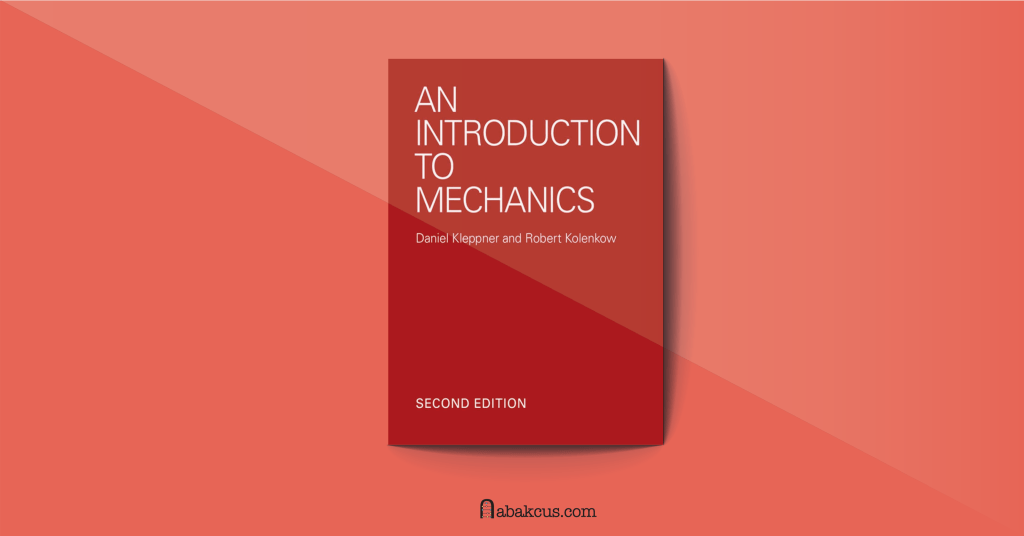
An Introduction to Mechanics by Daniel Kleppner is essential for physics students who want to understand how the universe works thoroughly. [You may also want to dive into ten brilliant physics books to help you understand the universe we live in.] It’s not just an in-depth look at mechanics but is also filled with helpful examples and worked-out problems that make it easier to grasp complex concepts.
It’s no wonder why this textbook is commonly found on the bookshelves of new and experienced university physics students! Who says learning can’t be fun? With enough curiosity and, of course, An Introduction to Mechanics by Daniel Kleppner for your side, you’re already arming yourself with a successful future in the modern world of engineering and modern science.
Introduction to Linear Algebra by Gilbert Strang
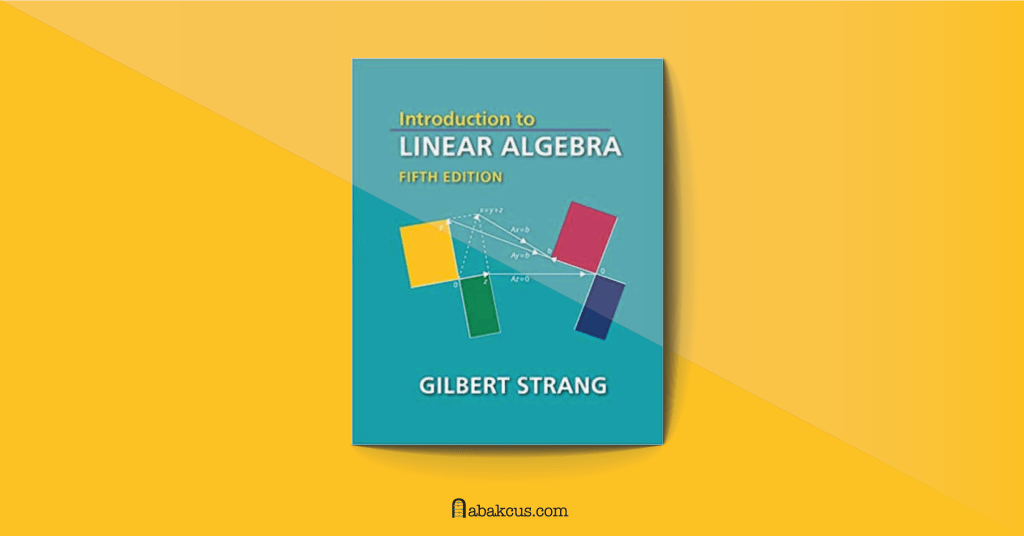
Your mathematical skills should be good if you want to be a good physicist. Introduction to Linear Algebra by Gilbert Strang has become the go-to math textbook for aspiring physicists. It’s easy to see why; this book does an excellent job of breaking down linear algebra into concepts that even non-experts can understand.
And, with plenty of helpful diagrams and detailed explanations sprinkled throughout, learning complex mathematical operations becomes a cinch. Whether you’re a physics major looking to take your knowledge to the next level or someone looking to explore their curiosity about mathematics, there’s no better resource than Introduction to Linear Algebra by Gilbert Strang. With this little gem in your arsenal, even the most daunting equations will seem like child’s play!
Quantum Field Theory for the Gifted Amateur by Tom Lancaster

Quantum Field Theory for the Gifted Amateur by Tom Lancaster is an essential quantum physics textbook for any quantum physics student. It thoroughly explains quantum field theory in a conversational, friendly tone without shying away from difficult topics.
The book is refreshingly humorous, filled with puns and quirky illustrations to make it easier to understand even the more complex concepts. It is perfectly suited for beginners and experienced quantum Physics practitioners alike. It explains difficult concepts step-by-step, enabling even the most novice students to understand Quantum Field Theory comprehensively.
With this book, you don’t have to be a world’s leading physicist like Albert Einstein or Richard Feynman to understand gravitational force or electromagnetism!
Statistical Physics of Particles by Mehran Kardar
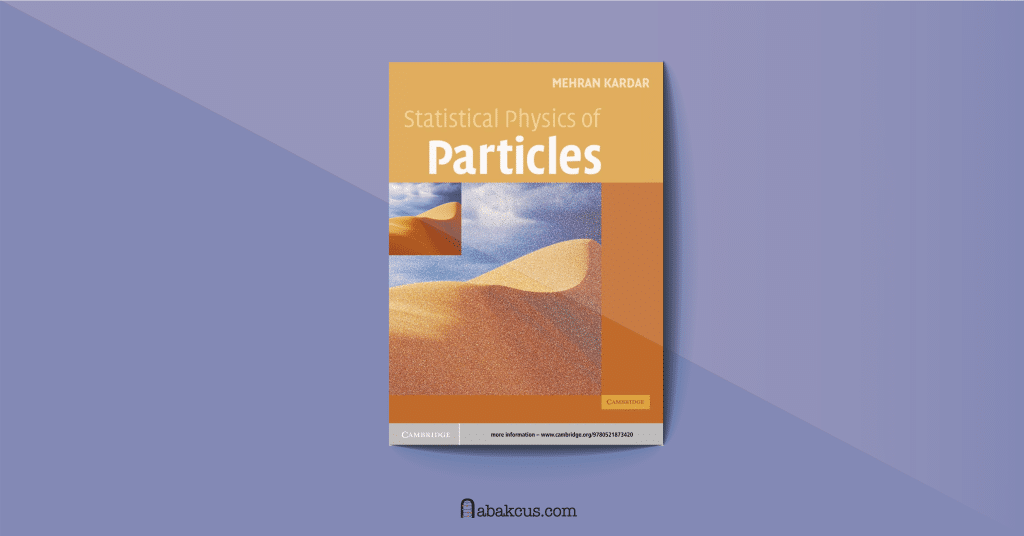
Statistical Physics of Particles by Mehran Kardar is an essential physics book for any student keen to learn the basics of statistical physics. It provides a comprehensive overview of the key concepts in physics, from fluid mechanics to optics, thermodynamics, and mechanics to statistical methods and processes. All of these topics are explained in great detail and contain many examples.
With a unique combination of technical breadth, detailed notes, practical applications, and occasional jokes, this textbook is an excellent source for mastering this branch of physics. Not to mention it can be quite a bit of a fun read!
This book should not be missed by anyone looking to understand statistical physics better and its application in the modern day!
Thermal Physics by Daniel V. Schroeder
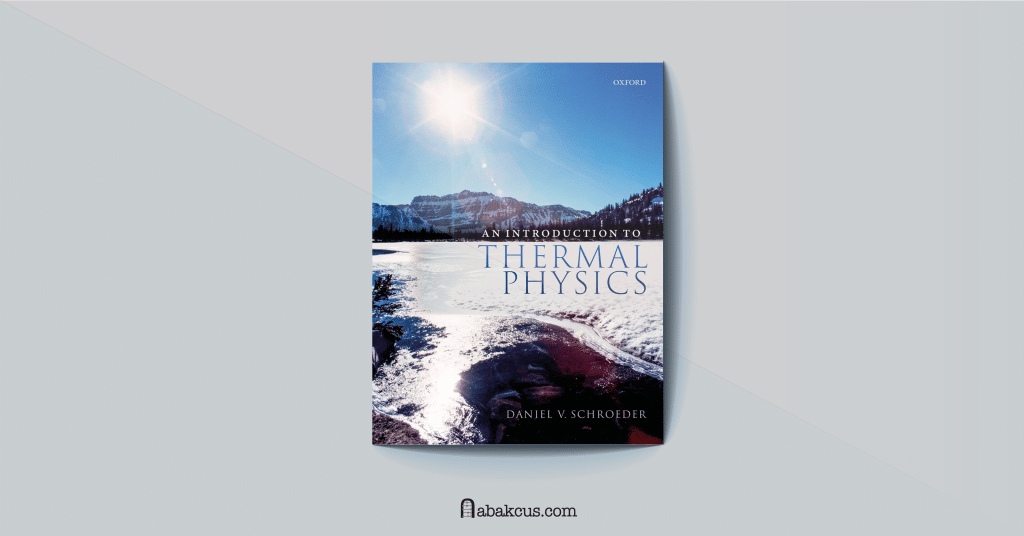
Thermal Physics by Daniel V. Schroeder is a great choice for any physics student looking to grasp better the unique ways heat and energy are related to their field of study. Not only does it provide incredible insight into a wide range of principles at play when studying thermal physics, but it does so in an engaging, conversational style that makes even the most complex concepts easy to comprehend.
Schroeder helps you connect physics to your everyday experiences and understand the fundamentals at work within physical systems and how they connect but also provides plenty of fun examples and questions to ensure these lessons stay with you long after you’ve put your textbook down.
Electricity and Magnetism by Edward M. Purcell

Electricity and Magnetism by Edward M. Purcell is an essential physics textbook for anyone looking to understand the physical laws governing electricity and magnetism truly. As the foundation of modern electronics, this book provides students with precise explanations of the fundamentals necessary to understand the behavior of these fields.
Unsurprisingly, this textbook has remained a cornerstone in modern physics education. However, what sets it apart is its approachability. Author Edward M. Purcell manages to explain complex topics with clarity and humor, making it a great resource for every aspiring physicist!
Solid State Physics by Neil W. Ashcroft and N. David Mermin
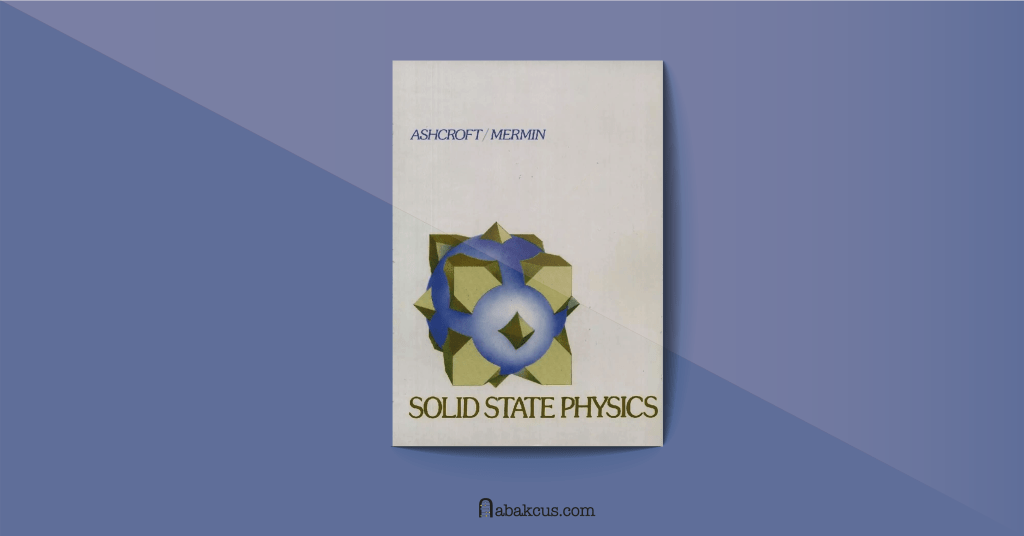
Solid State Physics by Neil W. Ashcroft and N. David Mermin is an essential physics textbook. Written by two esteemed physics professors, it offers a comprehensive look at solid states and materials physics concepts and theories in an accessible format.
It consists of complicated problem sets and diagrams to help readers better visualize important concepts and applications, which broaden understanding by showing how theoretical examples are used in real-life scenarios.
Above all, though, what sets this book apart is its humorous yet engaging writing style – Ashcroft and Mermin have even been known to slip quotes from classic literature and pop culture into their explanations! There’s no doubt that Solid State Physics can help any aspiring physicist become a master of their trade!
Classical Electrodynamics by John David Jackson
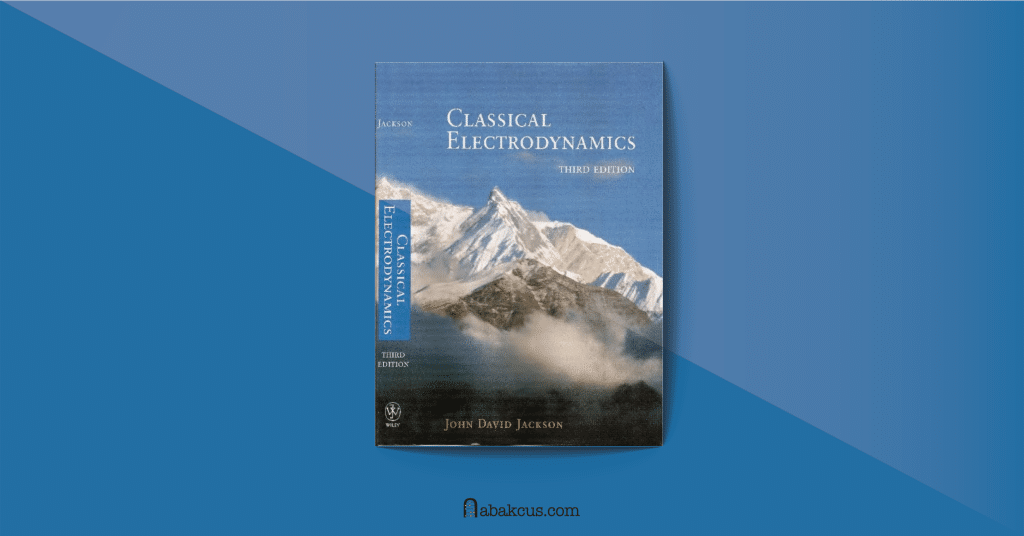
Classical Electrodynamics by John David Jackson is an essential resource for anyone studying physics due to its comprehensive coverage of the subject and detailed explanations. This textbook covers everything from introductory topics such as Coulomb’s law to advanced physical principles like gauge transformations.
It offers much more than just a review of basic physics concepts: Each subject is treated in depth, allowing readers to explore the scientific fundamentals thoroughly. The diagrams included are exceptionally helpful for visualizing complex ideas and building on abstract physical principles toward better understanding.
The written content makes this book especially suitable for those learning about physics for the first time, and it also serves as an excellent refresher for experienced professionals!
Differential Equations by Shepley L. Ross

You need to know calculus-based physics. The Differential Equations by Shepley L. Ross textbook is a must-have for any physics student looking to get the most out of their studies. It provides an accessible introduction to calculus-based physics, like differential equations, and helps students break down complex topics with step-by-step explanations that are easy to understand and follow.
With this book, one will quickly move from a beginner’s understanding of the subject matter to advanced applications of it, mastering everything in between. Furthermore, this textbook takes a humorous approach to learning, with jokes throughout its pages that make studying easier and more enjoyable.
Differential Equations by Shepley L. Ross is essential for any physics student looking to learn the fundamentals of calculus-based physics needed to understand various phenomena and unlock their hidden secrets.
How hard is physics in college?
Physics in college can sometimes feel insurmountable, like carrying a never-ending stack of physics textbooks home on the first day of physics class. On the other hand, it is an interesting subject that often leads to fascinating insights and is worth the effort.
Those who commit themselves to their studies may find that mastering physics is one of the most rewarding tasks they take on in college physics; after all, delving into this systematic exploration of the nature of the universe can be life-changing.
No matter how daunting it might seem, the knowledge you gain from conquering such a challenging field could provide many priceless dividends in your professional life and beyond.
What is the best textbook for a level physics?
Searching for a suitable textbook for learning physics can seem like an arduous task. Fortunately, other than what I shared above, many colleges’ best physics textbooks designed for a level of physics make studying the physical sciences easy and enjoyable.
One of the best college physics textbooks around is Douglas Giancoli’s Physics: Principles with Applications, 7th Edition. With clear explanations of various processes, helpful diagrams to aid understanding, and an extensive range of exercises and quizzes for practice, this is one of the most comprehensive physics education research resources available for engineering students wanting to get ahead in their studies of physics.
How to study physics from a textbook?
Best physics textbooks can be intimidating if you don’t know how to study them. Don’t worry; studying college physics from a textbook doesn’t have to be like wrangling a grizzly bear – it just wants to help you explore the laws of nature!
To get started, read the book’s introduction or table of contents; this will give you an idea of its structure and what topics it covers. When tackling each chapter, focus on understanding the key points instead of getting bogged down in minor details. Taking the time and thoughtfully engaging with the material is essential for successful learning.
Also, try breaking up long reading sessions with active learning activities such as diagramming or problem-solving that reinforce the key concepts of physics you’ve learned. In no time, you’ll be well on your way toward mastering physics and your physics textbooks!
What are the best books to read on physics?
Regarding college physics, the options for the best physics books to read are nearly endless! “A Brief History of Time” by Stephen Hawking is one of the best physics books on complex subjects, providing accessible insight into the complexities of physics from one of its greatest minds.
For those looking for something more challenging, “Quantum Theory: A Very Short Introduction” provides a short but comprehensive exploration of just what it says on the cover.
Those who want a more approachable reference will appreciate “The Feynman Lectures on Physics,” an excellent entry point into scientific physical principles.
Finally, those seeking something a little quirkier could reach for “Seven Brief Lessons on Physics,” which effectively presents fundamental information about physics with a humorous narrative and accompanying graphics. No matter your preference, there’s sure to be a book perfect for you!
Or you can check one of our best book lists, Ten Of the Best Books About Physics to Understand Our Universe.
What book should I read to learn physics?
When it comes to mastering the art of physics, one book that you won’t want to miss is Fundamentals of Physics by Halliday, Resnick, and Walker. This comprehensive text covers all the basics, from Newtonian physics to nuclear physics, sound waves to electrostatics, and much more.
It’s written in an accessible way to help beginners build up their physics knowledge without being overwhelmed by complex terms or equations. Plus, there are plenty of examples and diagrams to help illustrate the key basic concepts of physics – so no matter what your background or experience with physics is, you’ll find this book highly useful!
So if you’re looking for a good starting point for your college physics learning journey – Fundamentals of Physics is the way to go!
Which is the toughest physics book?
Determining the toughest physics books is like deciding which came first, the chicken or the egg. Does one go for a classic work like Isaac Newton’s Philosophiae Naturalis Principia Mathematica or something more modern, packed with equations like Quantum Field Theory by Mark Srednicki?
Many classics and standouts have been published over the centuries, so it can be hard to decide. To make an informed decision, one must focus on accessibility and depth. The most suitable book should be complex enough to challenge even experienced physicists but still straightforward enough for novices and newbies just starting to learn about this fascinating branch of modern science.
Which book is known as the Bible of Physics?
The Feynman Lectures have been called the Bible of physics for a good reason, and they are legendary for revealing complex concepts of physics in an accessible and humorous way. Known as the godfather of modern physics, Richard Feynman was born to popularize science, which showed in his timeless lectures.
They’ve become required reading for generations of budding physicists. Filled with anecdotes and often witty expositions, this classic work still stands unmatched as a powerful introduction to physics over half a century later.
What books should I read to be a physicist?
For those looking to understand physics, one of the best places to start is Isaac Newton’s seminal work, “Philosophiae Naturalis Principia Mathematica.” This comprehensive volume provides an in-depth look at the foundational theories and physical principles that form the backbone of modern physics.
Another classic to pick up is Albert Einstein’s “Relativity: The Special and General Theory,” which dives into the general relativity of space and time. Once you’ve got the basics down, today’s physicists might suggest branching out into Stephen Hawking’s more contemporary writings like “A Brief History of Time” for an interesting foray into black holes and quantum physics.
If you need more physics books, then you should check The Ten Best Popular Physics Books of 2022.
All these fascinating reads should provide plenty to ponder as you take your first steps into this groundbreaking discipline!
Who is the best author of physics?
Without a doubt, the greatest physicist-turned-author has to be Albert Einstein. His prolific career and incredible talent shouldn’t come as a surprise, considering he’s the brains behind some of the most groundbreaking theories ever!
He was responsible for developing the General Theory of Relativity, Brownian Motion, and many other important scientific discoveries that have revolutionized physics. Plus, Einstein wrote best-selling physics books such as “The World As I See It” and “Relativity: The Special and General Theory“—transforming him into a celebrity of sorts in the modern science world.
There’s rarely any debate about the best physics author – it’s Einstein, hands down!
Which is the toughest physics book to solve?
Solving physics equations and understanding the underlying physical principles can be daunting. And when it comes to books, one of the toughest physics books to tackle is sure ‘The Feynman Lectures on Physics.’
Written by Nobel prize winner Richard Feynman, these lectures are intense and full of challenging basic physics concepts. So much so that if you find it difficult to understand, the joke goes that Feynman was teaching quantum physics – one of the most perplexing physics topics!
But perseverance will surely pay off for those brave enough to take on this intimidating book. The clarity and depth embedded within make it an invaluable asset for anyone learning more about the fascinating world of physics.
What textbook is used for AP Physics?
Physics textbooks can vary significantly, depending on the type of course. For AP Physics, you have a lot of choices. Many teachers opt for world-renowned physics textbooks such as Giancoli’s Physics: Principles with Applications or Halliday, Resnick, and Walker’s Fundamentals of Physics.
Whichever physics textbooks your teacher chooses, make sure it has plenty of practice problems to sharpen your college physics problem-solving skills and help ace your AP Physics exams!


